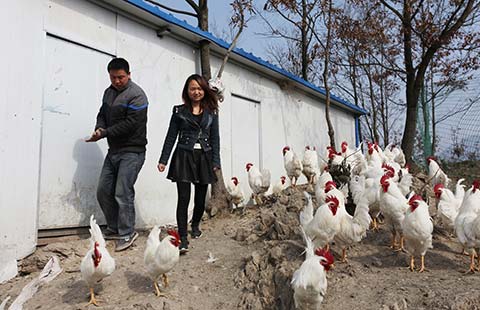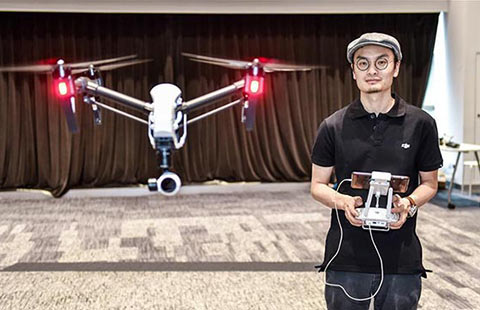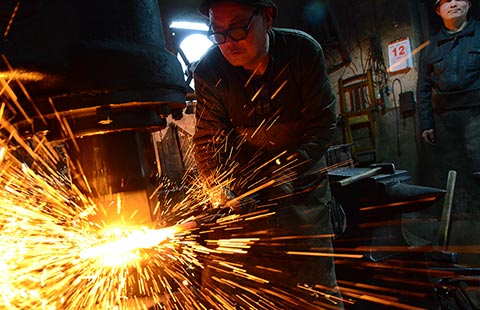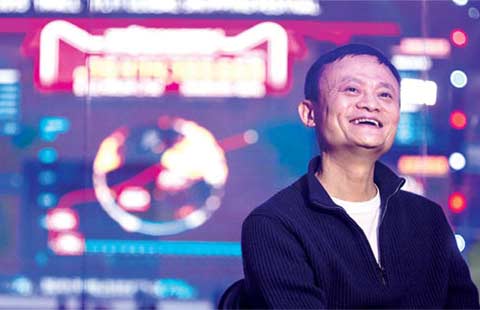Guangdong's boomtown Dongguan gets technological upgrade
By Qiu Quanlin (China Daily) Updated: 2016-03-24 07:56
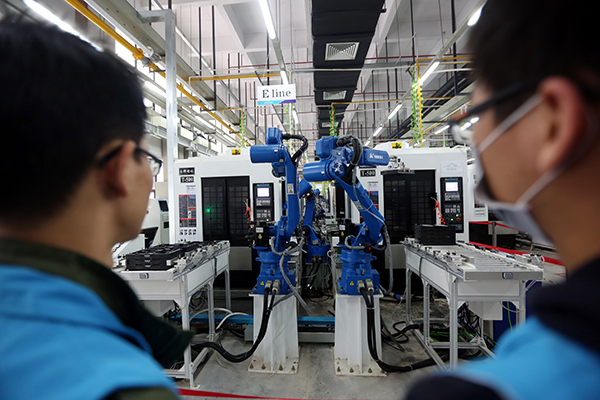 |
|
Two workers inspect a production line equipped with robots in Dongguan. [Photo/China Daily] |
According to Zhang, the company's sales grew quickly to 30 million yuan in 2015, and he expects this figure to reach 100 million yuan in 2016.
"The current number of online orders has exceeded the number of offline orders in the past. All of our sales are now done online," Zhang told China Daily.
Online sales are not the only factor driving the company's growth, as Zhang noted that the company also introduced smart equipment such as robotic machinery to its processing lines.
"We have invested more than 3 million yuan to buy smart equipment to increase production efficiency over the past few years," Zhang said.
Like Zhang's company, a growing number of traditional manufacturers in Dongguan, which has been known as the "world's factory" since the 1980s due to its strong processing and exported products, have introduced smart equipment to upgrade their business operations.
From 2014 to 2016, the Dongguan government has allocated 200 million yuan each year to assist enterprises in carrying out a new round of technological upgrading by introducing advanced automation equipment.
Janus Precision Components Co, a Dongguan-based original equipment manufacturer for electronic components, installed 80 industrial robots that replaced around 100 of its production line staff.
"We are still processing components for international companies like Samsung Electronics Co Ltd. But the production efficiency has been greatly improved, with labor costs reduced significantly, due to the introduction of automated equipment," said Huang He, deputy general manager of Janus Precision.
Facing a labor shortage and rising costs, factories in Dongguan are seeking solutions from robots as the city shifts from thin-profit labor-intensive processing to high-tech manufacturing with high added value, according to Xu Jianhua, Party chief of Dongguan.
China's industrial robotics sector has boomed over the past few years, narrowing the gap with other countries, with sales in the Chinese market jumping 36.6 percent year-on-year in 2015, according to Xinhua News Agency.
- LeEco plans to go global, with first targets US, India
- China's Fosun poised to acquire London complex
- Loans are double-edged sword for students
- Study shows consumers shifting toward more high-end products
- China urges US to wrap up trade pact before election
- Top 10 Chinese brands with most overseas revenue
- MYbank launched app to better serve loan seekers
- Chinese stocks gain on securities

